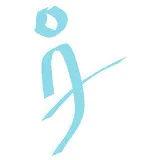Safran to Make Blades for LEAP-1A engine as Supply Chain Dry's Up
French aerospace giant Safran is embarking on a significant strategic shift, aimed at reducing its reliance on foreign suppliers for critical aircraft engine components. This move is driven by a confluence of factors, including: Geopolitical Concerns: Escalating global tensions have highlighted the vulnerabilities of relying heavily on foreign suppliers, particularly in strategically sensitive sectors like aerospace. Supply Chain Sustainability: Safran seeks to enhance the sustainability and resilience of its supply chain, mitigating risks associated with potential disruptions and ensuring the timely production of its engines. Meeting Growing Demand: The surging demand for the Airbus A320neo family of aircraft, powered by Safran-GE's LEAP-1A engines, necessitates a robust and reliable supply chain to meet production targets. To achieve this strategic objective, Safran is undertaking several key initiatives: New Belgian Plant: Safran Blades, a subsidiary of Safran Aero Boosters, is establishing a new manufacturing facility in Marchin, Belgium. This plant will focus on producing critical low-pressure compressor blades and vanes, commonly known as booster blades, which were previously sourced from external suppliers. Internal Foundry: Safran is expanding its in-house manufacturing capabilities with a new foundry facility in Rennes, France, named Safran Turbine Airfoils. This facility will further strengthen the company's control over the production of key engine components. Strategic Acquisitions: Safran's acquisition of Aubert & Duval, a key metal supplier, in 2022, was a strategic move to enhance the reliability and quality of its supply chain. Diversifying Supplier Base: Safran is actively diversifying its supplier base, reducing over-reliance on any single source. This includes limiting the proportion of components sourced from any single supplier, particularly those located in regions with heightened geopolitical risks. By implementing these strategic measures, Safran aims to: Enhance Supply Chain Resilience: Mitigate risks associated with geopolitical instability, natural disasters, and other unforeseen events that could disrupt the supply of critical components. Improve Production Efficiency: Gain greater control over the production process, leading to improved efficiency, reduced lead times, and enhanced quality. Strengthen Competitive Position: Ensure a reliable and sustainable supply of components, enabling Safran to meet the growing demand for its engines and maintain its competitive edge in the global aerospace market. #Safran #Aerospace #SupplyChain #EngineParts #EngineBlades

